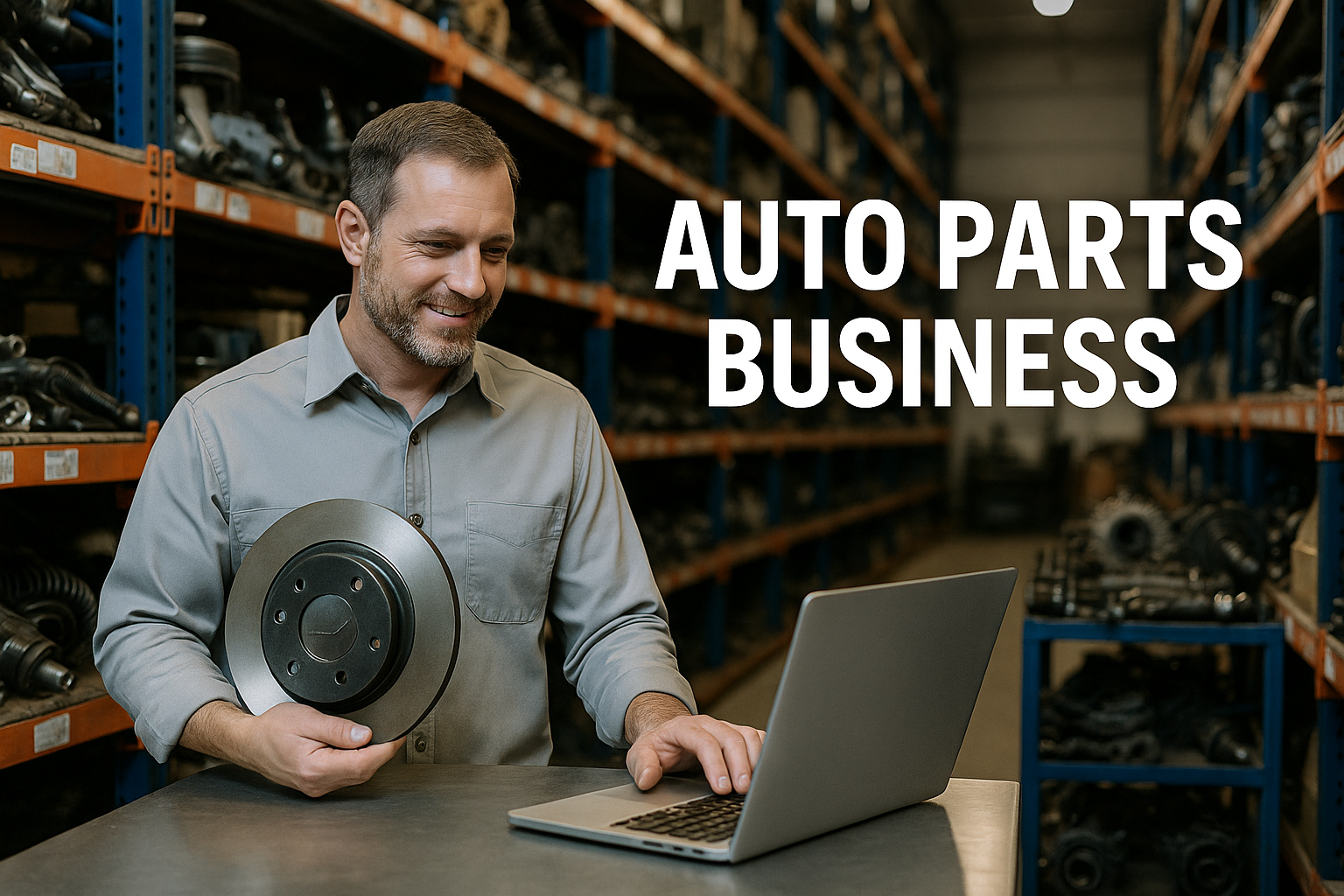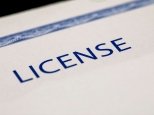- Identify your target market (car models, demographics).
- Analyse local competition and their strengths/weaknesses.
- Determine your niche (specific parts like tires, batteries, performance parts, etc.).
- Create a comprehensive business plan including financial projections, marketing strategy, and operational details.
4 easy steps to PAN Application
-
Fill up the Form.
-
Submit the documents.
-
Pay only professional fee.
-
Get your PAN Application.
PROCESS OF STARTING AN AUTO PARTS BUSINESS
-
Decide the Type of Auto Parts Business
Choose the business type based on your expertise and investment; such as Wholesale Auto Parts Business, Retail Auto Parts Store Business, Auto Parts Manufacturing Business, Auto Parts import and export business etc.
-
Conduct Market Research
- Identify your target customers (mechanics, garages, fleet operators, individual car owners).
- Study your competitors (pricing, brands, services, and customer base)
-
Register Your Business & Obtain Licenses
- Business Registration: Register as Sole Proprietorship, LLP, or Private Limited Company.
- GST Registration, Trade License, BIS Certification, Pollution Control Certificate, Factory License etc.
-
Secure Investment & Funding
- Self-Funding: Personal savings or family investment.
- Bank Loans & MSME Loans or Mudra loans for working capital and Investor Funding (For large-scale businesses).
- Supplier Credit: Some manufacturers offer stock on a credit basis.
-
Choose a Suitable Location
- For retail stores, select high-traffic commercial areas near garages or auto repair shops.
- For wholesale business, choose a warehouse space with good transport connectivity.
- For online business, invest in a good e-commerce platform and logistics tie-ups.
-
Set Up Your Store & Infrastructure
- Arrange shelves and racks for easy product display.
- Set up a computerized inventory management system and Install a billing counter & POS (Point-of-Sale) system.
- Maintain a backup stock of fast-moving items like batteries, filters, and brakes.
-
Partner with Reliable Suppliers & Manufacturers
- Local Manufacturers: Get dealership for leading brands like Bosch, Exide, Mahindra Genuine Parts, etc.
- OEM Suppliers: Tie-up with authorized vehicle service centers.
- Import Suppliers: Import quality auto parts from China, Germany, or Japan.
- Distributor Tie-ups: Partner with wholesalers to expand stock availability.
-
Hire & Train Staff
- Sales Executives for customer handling and Inventory Manager for smoothen the supply chain.
- Technicians & Mechanics who can Provide installation and support for complex parts.
-
Marketing & Promotions
- Online Presence: Create a Google My Business profile for local search visibility.
- Offline Marketing: Distribute brochures & banners, offer discounts to workshops & mechanics, Provide warranty.
- Online Marketing: Sell on e-commerce website, promote on WhatsApp, Instagram & Facebook ads or start a YouTube channel for car & bike maintenance tips (driving traffic to your store).

TYPES OF AUTO PARTS BUSINESS
WHOLESALE AUTO PARTS BUSINESS
A “Wholesale Auto Parts Business” is a type of automotive business that buys large quantities of auto parts directly from manufacturers and then sells them in bulk to other businesses like repair shops, retail auto parts stores, or other wholesalers, essentially acting as a middleman to distribute parts to various retailers rather than selling directly to consumers.
RETAIL AUTO PARTS STORE BUSINESS
A retail auto parts store is a business that directly sells automotive parts and accessories to consumers, offering a wide range of products for various vehicle makes and models, typically through a physical storefront, and can include options like a single brand focus, multi-brand selection, or specialized parts for specific vehicle types, all while providing customer support and potentially installation services; essentially acting as a point of sale for car owners needing replacement parts for maintenance or repairs.
AUTO PARTS MANUFACTURING BUSINESS
An auto parts manufacturing business involves the production of individual components or assemblies used in automobiles, ranging from engine parts like pistons and valves to exterior body parts like bumpers and headlights, catering to both original equipment manufacturers (OEMs) and the aftermarket automotive repair industry; different types of auto parts businesses can be categorized based on the specific parts they manufacture, their customer base (OEM vs aftermarket), and the level of specialization within the manufacturing process.
AUTO PARTS IMPORT AND EXPORT BUSINESS
An auto parts import and export business involves buying automotive spare parts from one country and selling them to another, essentially acting as a middleman between manufacturers and vehicle owners, capitalizing on price differences and market demand variations across different regions; key aspects include identifying target markets, sourcing reliable suppliers, ensuring quality standards, navigating customs regulations, and managing logistics for efficient shipping; types of auto parts businesses within this sector can range from specializing in specific vehicle components like engines, brakes, or body parts, to focusing on niche markets like classic car parts or high-performance aftermarket accessories.
SCRAP AND USED AUTO PARTS BUSINESS
A scrap and used auto parts business buys old, discarded vehicles or individual parts from sources like junkyards, salvage yards, and private sellers, then cleans, repairs, and resells them to customers looking for affordable replacements for their cars, often focusing on specific types of vehicles or components like engines, transmissions, body parts, and electronics; this business model is typically categorized as a “salvage yard” or “auto recycling center” and can operate in a retail setting with a physical store or primarily online.
AUTO PARTS REPAIR AND REFURBISHMENT BUSINESS
An auto parts repair and refurbishment business focuses on taking used or damaged automotive parts, repairing them to a functional state, and then selling them to customers, often at a lower price than brand new parts; this can include various business types like junkyards, specialized repair shops, and online retailers, each with unique operations and customer bases depending on the type of parts they focus on and the level of repair involved.
REQUIREMENT OF AUTO PARTS BUSINESS
MARKET RESEARCH AND BUSINESS PLAN
SUPPLIERS & INVENTORY MANAGEMENT
- Find reliable suppliers, manufacturers, or wholesalers for parts.
- Maintain an inventory of high-demand auto parts like:
- Engine oil, filters, brake pads, batteries.
- Electrical components, lights, bumpers, mirrors.
- Tires, alloy wheels, and performance parts.
- Use inventory management software to track stock.
LOCATION & SETUP
- High traffic area: Choose a location with a high volume of vehicle traffic, like a main road or near a busy intersection.
- Proximity to repair shops: Being close to auto repair shops can significantly increase customer base as mechanics often need parts readily available.
- Parking availability: Ensure adequate parking space for customers.
- Visibility: The store should be easily visible from the road with clear signage.
- Demographics: Consider the local demographics and vehicle types prevalent in the area.
STAFF & MANPOWER
- Retail Store: 2-5 staff for sales and inventory.
- Wholesale Business: 5-10 staff for logistics and operations.
- Manufacturing Unit: 10-50 workers for production.
- Online Business: Customer service, website management, and delivery team.
GROWTH & EXPANSION
- Expand product range (spare parts, accessories, performance parts, etc.).
- Launch multi-city branches or franchises.
- Start exporting or tie-up with international brands.
- Offer repair and maintenance services along with selling parts.
TECHNOLOGY & SOFTWARE
- Billing & Accounting Software (Tally, Marg, QuickBooks).
- E-commerce platform (if selling online: Shopify, WooCommerce, Amazon, Flipkart).
- Inventory management system to avoid overstocking/understocking.
- Digital Marketing (SEO, social media, Google ads) to attract customers.
INDUSTRY TRENDS
- Electric Vehicle (EV) Focus: As EV adoption increases, demand for specific EV components like electric motors, battery packs, and charging infrastructure is rising significantly.
- Advanced Manufacturing Techniques: 3D printing is gaining traction for rapid prototyping and on-demand production of custom auto parts, allowing for greater design flexibility and cost optimization.
- Sensor and Connectivity Technology: The rise of autonomous driving and connected cars is driving the need for sophisticated sensors, cameras, LiDAR systems, and other components enabling V2X communication.
- Sustainability Initiatives: Environmental concerns are pushing manufacturers towards utilizing recyclable materials and eco-friendly production processes.
- Data Analytics and Predictive Maintenance: Utilizing data to predict component failures and optimize maintenance schedules is becoming crucial for aftermarket parts businesses.
- Customization and Personalization: Growing consumer preference for customized vehicle parts is opening up opportunities for tailored solutions.
PRICING STRATEGY
- Cost analysis: Accurately calculating the cost of each part, including materials, labor, and overhead, to determine a minimum price point.
- Market research: Understanding the current market prices for similar auto parts from competitors, including both established brands and smaller players.
- Customer segmentation: Identifying different customer types (e.g., DIY mechanics, professional repair shops, fleet owners) and tailoring pricing strategies to their needs and price sensitivity.
- Value proposition: Clearly defining the unique features and benefits of your auto parts to justify a premium price if applicable.
- Quality consideration: Balancing price with quality, as high-quality parts may command a higher price due to their reliability and longevity.
- Competitive analysis: Monitoring competitor pricing strategies and adjusting your own prices to remain competitive while maintaining profitability.
DOCUMENT FOR AUTO PARTS BUSINESS
TRADEMARK REGISTRATION
For an auto parts business, trademark registration provides legal protection for your brand, allowing you to differentiate your products and services, and preventing others from using your trademark without permission. Registering under Class 12 is crucial, as it covers vehicles and their components.
TRADE LICENSE
A “Trade License for an Auto Parts business” is a legal document issued by the local municipal corporation that permits a business to sell automotive parts within a specific area, signifying that the business is operating legally and adhering to local regulations regarding the sale of auto parts; essentially, it’s a license to conduct an auto parts business in that location.
SHOP & ESTABLISHMENT ACT REGISTRATION
A “Shop & Establishment Act Registration” for an auto parts business is a mandatory legal requirement in India that compels businesses like auto parts shops to register with the state government, thus ensuring they comply with regulations regarding employee working conditions, like working hours, wages, leave policies, and other aspects of employment, as mandated by the state’s Shop and Establishment Act; essentially, it’s a way to protect employee rights and ensure fair treatment within the workplace.
UDYAM REGISTRATION
Udyam registration, also known as MSME registration, is a government-issued certificate that certifies a micro, small, or medium-sized enterprise (MSME). It’s a free, online process that’s available to auto parts businesses.
Benefits of Udyam registration
- Government benefits: Access to government schemes, tenders, and subsidies
- Loans: Collateral-free loans and lower interest rates from banks and financial institutions
- Protection: Protection against delayed payments and dispute resolution
- Support: Incubation, mentorship, and other support
FACTORY LICENSE
A factory license is a legal document that allows a factory to operate and is required for auto parts manufacturing businesses. It’s issued by the state government. All manufacturing units that employ a specific number of workers. Factories that produce goods.
Purpose:
- Ensures compliance with safety, health, and environmental regulations
- Protects workers’ health and welfare
- Helps to apply for other licenses
- Provides benefits from government schemes
BIS CERTIFICATION
BIS certification for auto parts is a third-party assurance that the parts meet Indian quality, safety, and reliability standards. The Bureau of Indian Standards (BIS) is responsible for certifying automotive components that are sold in India.
Benefits of BIS certification
- Consumer safety: BIS certification ensures that products are safe to use
- Quality assurance: BIS certification indicates that a product has met Indian standards
- Market access: BIS certification can help businesses access the Indian market
- Competitive advantage: BIS certification can help businesses stand out from competitors
- Brand reputation: BIS certification can help businesses improve their brand reputation
FSSAI LICENSE
A Food Safety and Standards Authority of India (FSSAI) License for an auto parts business is a mandatory legal requirement that ensures an auto parts food services, including products like car perfumes. adhere to strict food safety standards set by the Indian government, this license is obtained by registering with the FSSAI under the Food Safety and Standards Act, 2006, which governs all food-related businesses in India, making it essential for any hospital operating a food service facility to obtain this license.
POLLUTION CONTROL BOARD CLEARANCE
A “Pollution Control Board Clearance” for an auto parts business is a mandatory permit issued by the relevant state Pollution Control Board (PCB), signifying that the business complies with environmental regulations and has taken necessary measures to minimize any potential pollution generated during its operations, like waste disposal or hazardous material handling, related to the manufacturing or selling of auto parts.
AN IMPORT-EXPORT CODE (IEC)
An Import-Export Code (IEC) is a unique 10-digit identification number required by any business in India, including auto parts companies, to legally import or export goods, essentially acting as a mandatory registration for international trade activities with the government, allowing them to clear customs and comply with export-import regulations; you cannot export auto parts from India without an IEC.
Compare with other Auto Parts Business
Pick a Business Structure That Works Best For Your Business
- Initial Investment
- Profit Margin
- Space Requirement
- Technical Knowledge
- Licensing & Regulations
- Manpower Requirement
- Market Demand
- Break-even Period
- Scalability
- Competition Level
- Risk Factors
Here are some Frequently Asked Questions about Auto parts business
What are the different types of auto parts businesses?
What are the key factors to consider when starting an auto parts business?
What are the initial costs involved in starting an auto parts business?
- Business registration & licenses: ₹10,000 – ₹50,000
- Inventory (stocking parts): ₹5 lakh – ₹50 lakh (depending on scale)
- Rental for shop/warehouse (if needed): ₹20,000 – ₹1 lakh/month
- Website and digital marketing: ₹30,000 – ₹2 lakh
- Staff salaries (if applicable): ₹20,000 – ₹1 lakh/month
- Miscellaneous expenses (transport, utilities, etc.): ₹50,000 – ₹2 lakh
How do I source auto parts for my business?
- Direct from OEMs (Maruti Suzuki, Tata Motors, Hyundai, etc.)
- From wholesalers and distributors in major cities (Delhi, Mumbai, Chennai, etc.)
- Import from China, Germany, Japan, or the USA (requires IEC)
- Manufacture your own parts (if you have a production setup)
- Purchase from scrapyards and refurbish for resale
What are the challenges in running an auto parts business?
- High competition from local stores and online platforms
- Managing inventory (overstocking or understocking issues)
- Counterfeit parts in the market affecting credibility
- Fluctuating import duties and government policies
- Changing trends in automobile technology (e.g., rise of EVs)
Leave Your Accounting to Us and File GST Accurately.
Save time, money, and taxes with our AI based Business softwares and expert accountants.
















